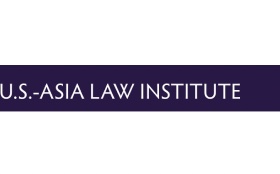
Author: Tamar Groswald Ozery
Since US and Chinese authorities reached an agreement last August in the controversy over information disclosure by the auditors of China-based US-listed companies (Chinese issuers), the threat that these companies would be delisted en masse has receded. The US Public Company Accounting Oversight Board (PCAOB) has begun inspections of the accounting firms that prepare audit reports for Chinese issuers. American investors may be breathing sighs of relief.
But the risks to investors are not being mitigated, and in fact may be worsened by the approach chosen by the US Congress and Securities and Exchange Commission (SEC). Even if the threat of delisting will induce higher quality control over the auditors of Chinese issuers, the benefits are likely to be limited. US securities laws are being used to promote a geopolitical agenda rather than investor protection. Moreover, the approach undermines the reputation of the US market as a global financial gateway while boosting other markets as alternatives. It has also given China ammunition to justify its tightening of control over its companies’ offshore listings and cross-border data flows in ways that could further disadvantage investors’ interests.
The threat to delist Chinese issuers arose when Congress passed the Holding Foreign Companies Accountable Act (HFCA) in December 2020. For years, US securities regulators had been unable to inspect the audits of Chinese issuers due to regulatory barriers imposed by Chinese information-sharing laws. The HFCA, promoted as protecting investor interests and safeguarding the integrity of US capital markets, effectively prohibited trade in Chinese issuers’ securities (including over-the-counter) within three years (later shortened to two) unless the PCAOB could carry out the audit inspections. In 2022, the SEC identified 165 Chinese issuers as non-compliant for the year 2021, subjecting them to potential delisting under the act. It was likely this intense pressure that finally induced China to permit PCAOB inspections of Hong Kong and Chinese audit firms.
US securities laws are being used to promote a geopolitical agenda rather than investor protection.
As my co-author Jesse Fried and I argue in a forthcoming paper, the US regulatory approach completely misses the mark. First, while there is evidence that PCAOB inspections contribute to audit quality, the data about the overall shareholder wealth contribution of periodically better audits is inconclusive. Second, there are multiple other ways besides accounting fraud for insiders to loot firms and abuse investors. The main weaknesses in the system were not addressed: namely, neither the HFCA nor the cooperation agreement address enforcement challenges or the lack of remedy for injured investors. (This conclusion is based on publicly available information, as the agreement itself was not disclosed.) When it comes to Chinese firms specifically, once fraud or any other violation by a Chinese issuer occurs, the fact that the insiders, the operating firm, and their assets are located in China makes the insiders legally unreachable, as Jesse Fried and Ehud Kamar rightly point out.
Read more at
https://usali.org/usali-perspectives-blog/the-holding-foreign-companies-accountable-act




